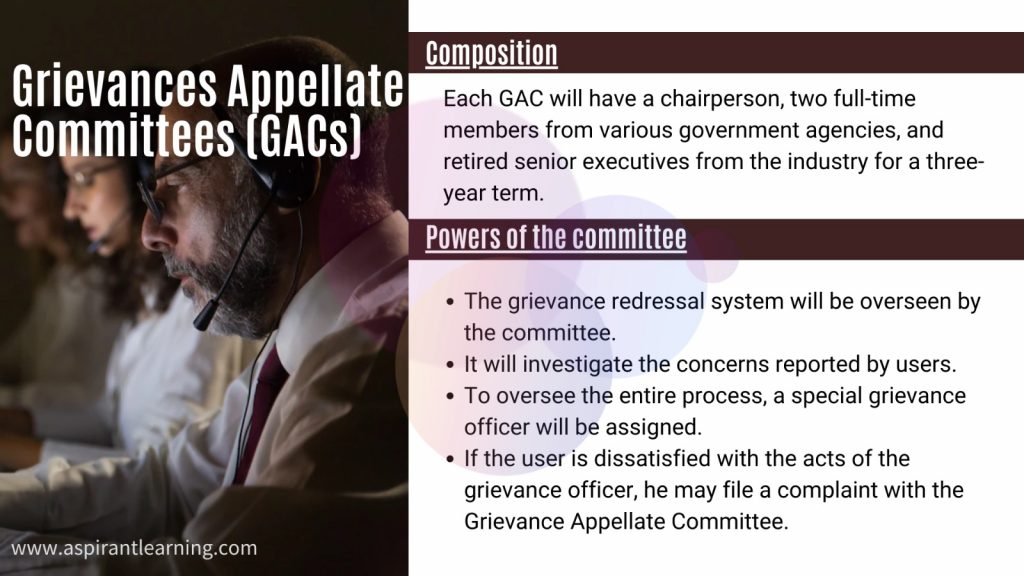News Highlight
The grievances appellate committees will be empowered to oversee and revoke content moderation-related decisions taken by social media platforms.
Key Takeaway
- The Centre has established three grievance appellate panels to handle customer complaints against social media and other internet-based platforms.
- In addition, it involves having the authority to supervise and revoke content moderation decisions made by these sites.
Grievance Appellate Committees
- About
- The Central Government would establish one or more “Grievance Appellate Committees” under the proposed modifications to the IT Rules, 2021.
- The appellate committees will hear appeals from users who disagree with the decision of the Grievance Officer assigned by the social media middleman.
- Furthermore, the committee will be chaired by the chief executive officer of the Indian Cyber Crime Coordination Centre under the Ministry of Home Affairs.
- Working
- Anyone dissatisfied with an order from a social media network’s Grievance Officer may file an appeal with the Committee within 30 days of receiving communication from the Grievance Officer.
- The Committee shall deal with such appeal swiftly and make every effort to resolve the appeal eventually within 30 calendar days of its receipt.
- Additionally, the intermediary must follow every order issued by the Committee.
The Need for Grievance Appellate Committees
- Multiple standoffs between the government and social media sites over content moderation and takedown occurred in 2021.
- As Internet connectivity in India continues to grow fast, new challenges concerning government policy emerge.
- As a result, it is vital to address the gaps to deal with such challenges.
IT rules, 2021
- About
- The government issued the Information Technology (Intermediary Guidelines and Digital Media Ethics Code) Rules in 2021.
- Features
- Significant Social Media Intermediaries (SSMIs) are social media intermediaries with more than a certain number of registered users in India.
- SSMIs are required to appoint compliance personnel, enable identification of the first originator of the information and deploy technology-based measures for content identification.
- In addition, all intermediaries must provide a grievance redressal process for users or victims to resolve complaints.
- Online publishers of news and current affairs content and curated audio-visual content have mandated a framework for content governance.
- For publishers, a three-tier grievance redressal procedure with varying levels of self-regulation has been proposed.
- Issues
- In some situations, the rules may go beyond the authorities assigned by the IT Act of 2000.
- Such as mandating certain intermediaries to identify the originating source of information and regulating SSMIs and internet publications.
- Furthermore, the grounds for regulating online content are overbroad and may jeopardise free expression.
- There are no procedural safeguards in place for demands by law enforcement authorities for information held by intermediaries.
- Requiring messaging providers to identify the primary author of the information on their platform may jeopardise people’s privacy.

Conclusion
- Anyone dissatisfied with a decision of a social media intermediary’s grievance officer has 30 days to seek an appeal with the GAC.
- The GAC must deal with the appeal and resolve it within one month of its receipt.
- The GACs’ online platform will be operational on March 1, 2023, taking into account the transition period required for intermediaries based on their requests and technological requirements.
Pic Courtesy: Tribune India
Content Source: Indian Express



